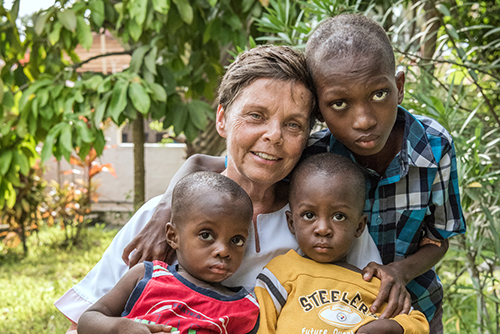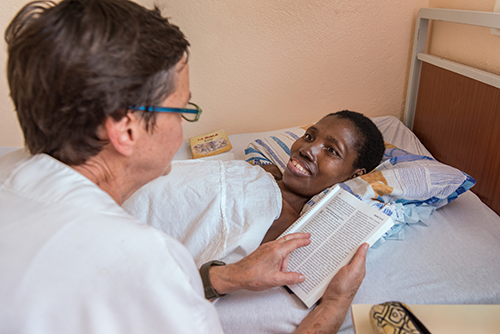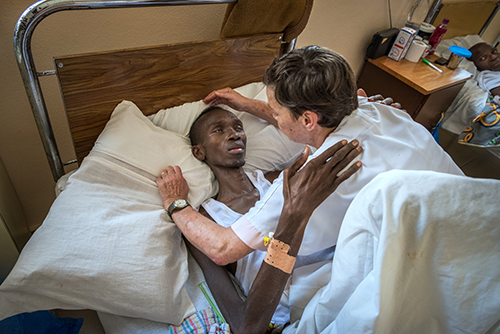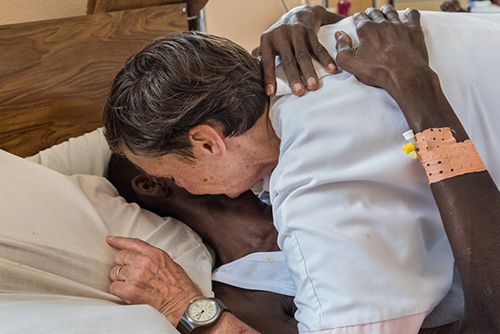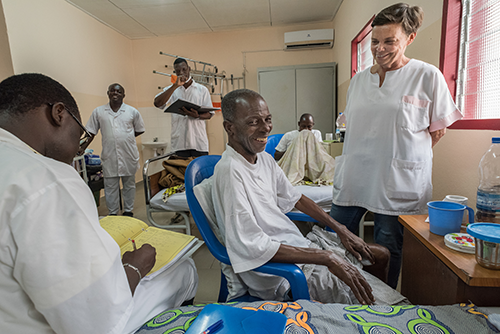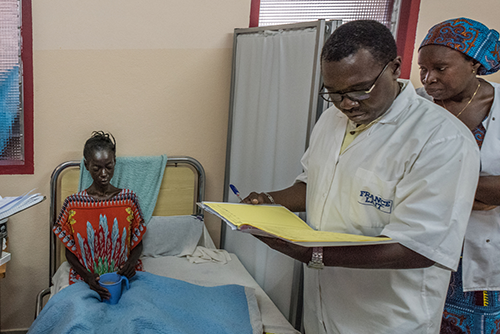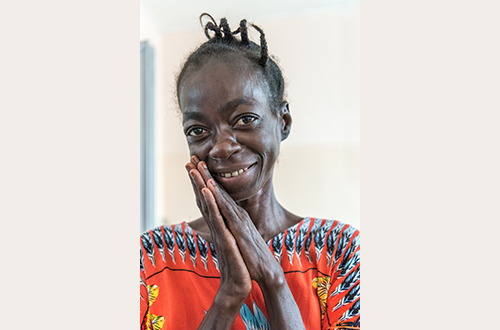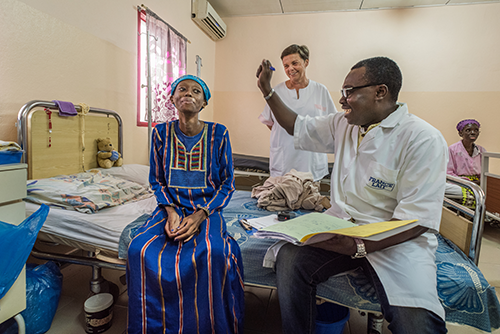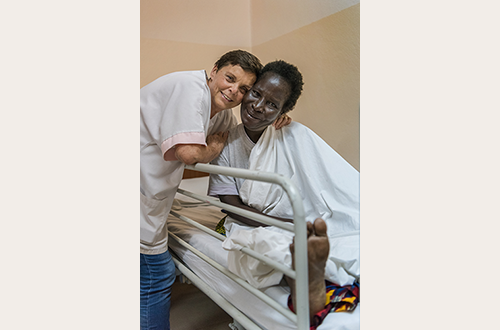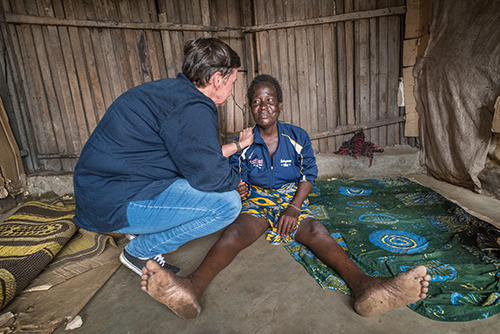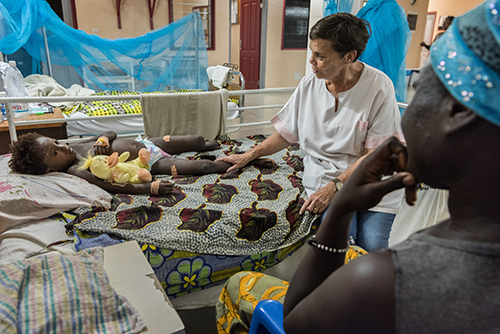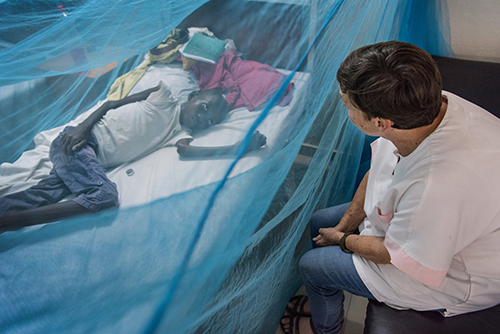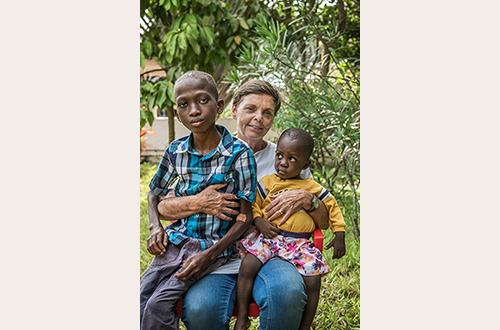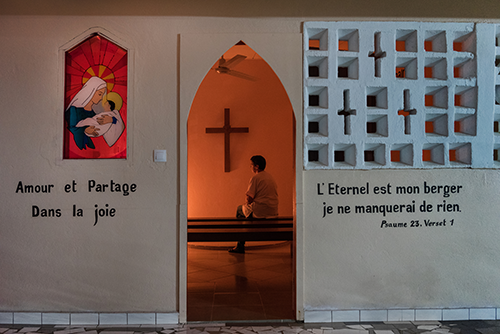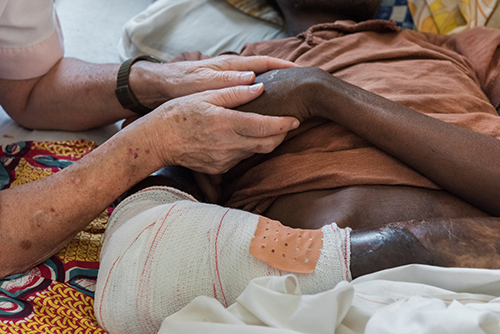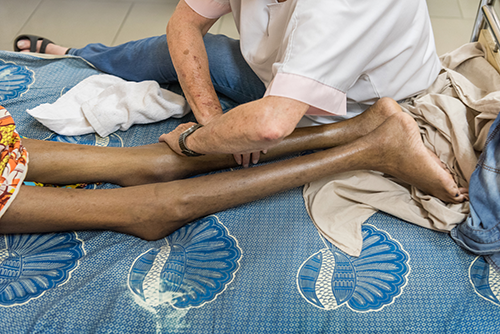The hospice was opened at the beginning of 2002. At that time there was neither electricity nor water and the work had to be carried out for months with kerosene lamps. The water had to be bought outside.
Initially the center was called "Hospital for Terminal Cases". Hundreds of poor people came to die there, especially young mothers who were infected with Aids, bringing with them their infected children. Their husbands had either died previously or had left them. So the children they left behind remained in our care. To enable the mothers to die in peace and with a clear conscience we promised the mothers to look after and care for their children.
In those days Aids was a fatal disease; today it has become more a chronic illness. Patients who are diagnosed with Aids at an early stage can continue to live a near normal life with appropriate medication.
Our hospice has become a place where many can find refuge. Especially old, severely disabled people whom nobody can or wants to nurse elsewhere. We cannot accept the state of degradation these impoverished people have to suffer, so we take them in and provide refuge. Sometimes they can enjoy a further few nice years with us and then die in dignity and surrounded by love.
We also accommodate adults and children suffering of cancers in the various terminal stages. Usually they come too late, the body already being full of metastases. They could die in a public hospital, but often they cannot afford this. We try to provide a caring and dignified surrounding for their final days.
We have 20 beds in the hospice. The employees consist of nurses, cooks, nannies and guards. And daily consultations are conducted by one of our three doctors.




